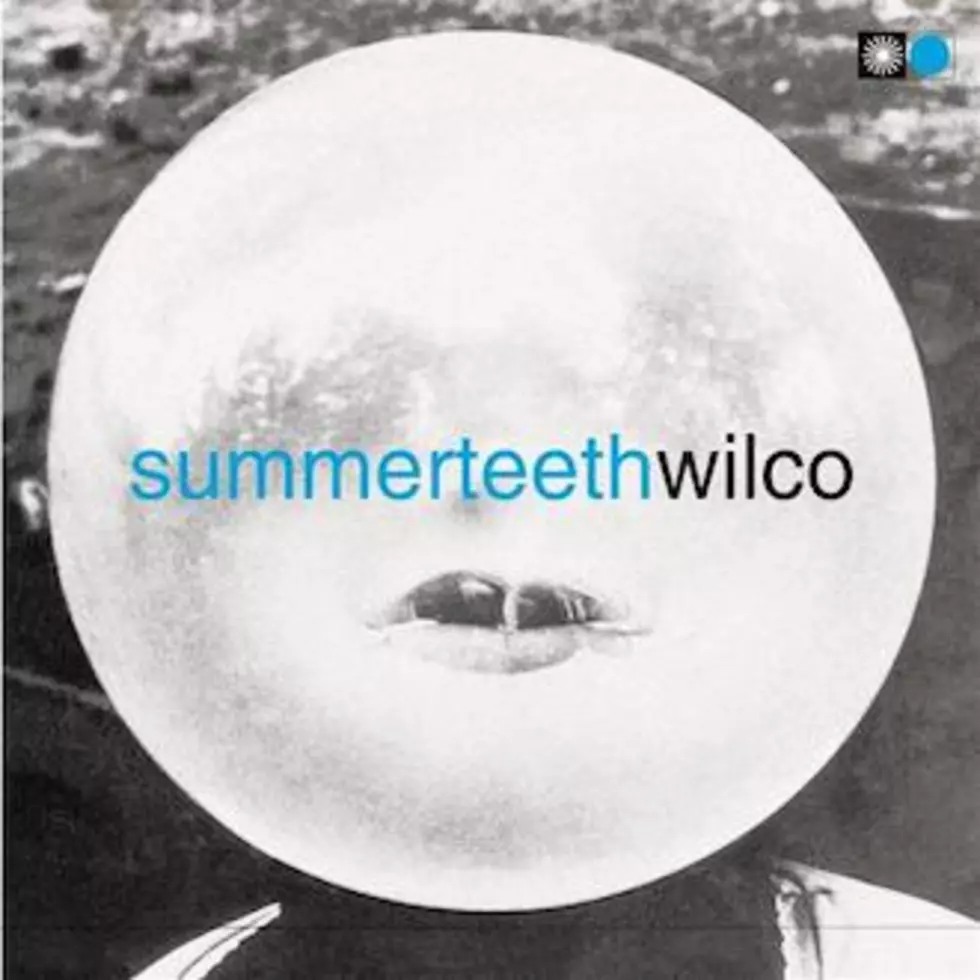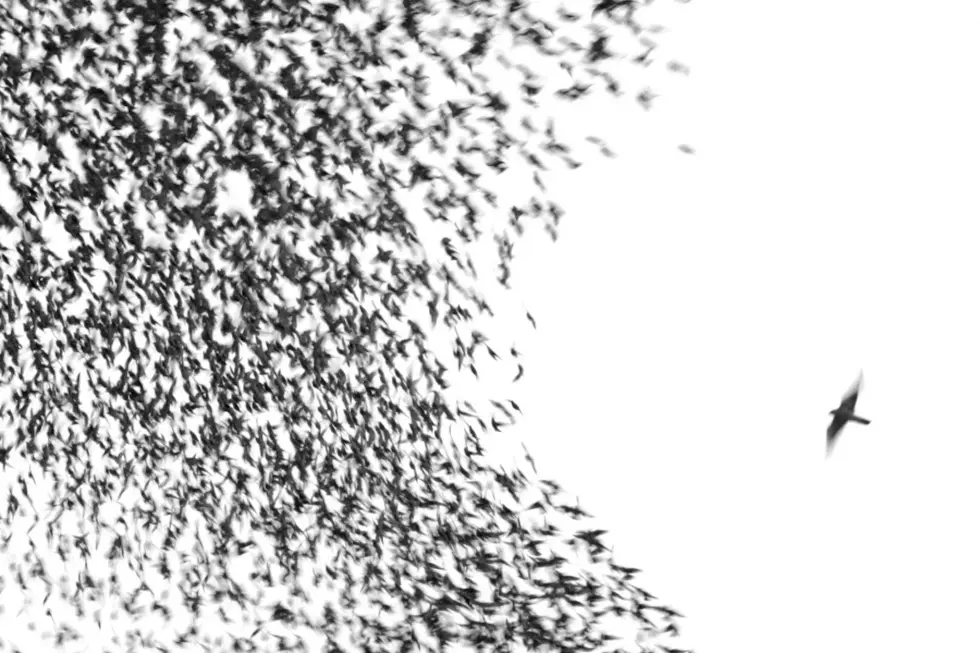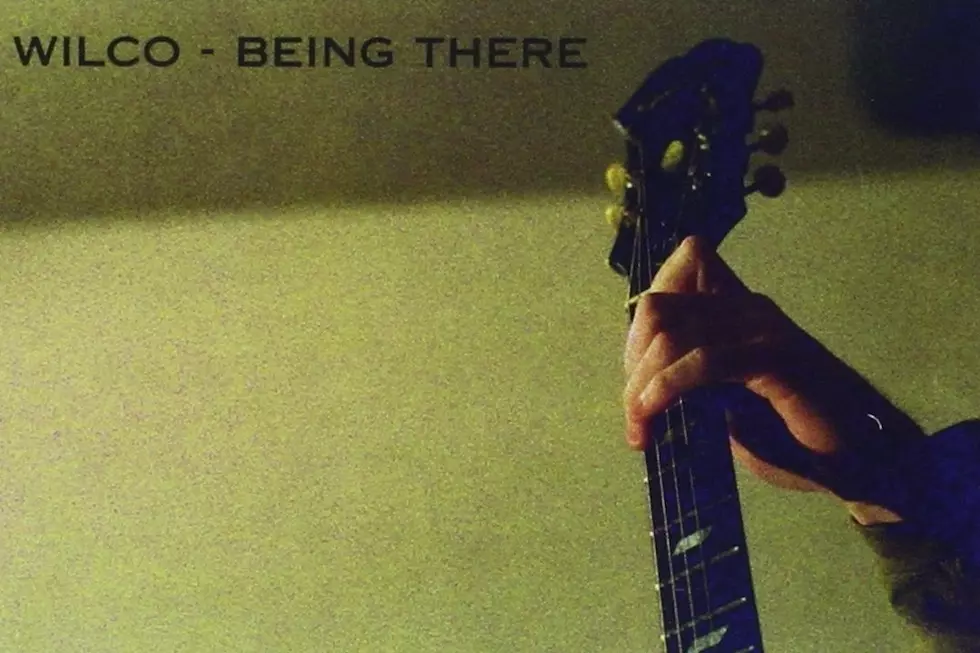
17 Years Ago: Wilco Release Their Studio Triumph ‘Summerteeth’
Summerteeth, which turns 17 today (March 9), is Wilco's most elusive album. It’s the only one built primarily on contradictions — some Wilco albums are harrowing and heartbreaking (like Yankee Hotel Foxtrot or A Ghost is Born); others are wistful and wondrous – like Wilco (The Album); others are reserved and dignified (like Being There). Summerteeth is all these at once: giddy and bereft; gregarious and violent.
Jeff Tweedy's lyrics are confounding, purposefully so, flashing with mystery but never descending totally into it. Some songs are about loneliness and abuse, and they're inseparable from the ones about love and nostalgia. Thanks to Jay Bennett's newfound influence in the band, the music is maximalist pop, often giving few indicators of the turmoil it adorns. The words "summer" and "teeth" evoke a kind of warmth and sunny malaise we all know, fused to things buried inside us, cutting instruments that grow inside our heads. The album is the sound of a songwriter trying to turn dumb human emotions into truth via pop music, the domain of dumb emotion if there ever was one.
Tweedy’s head was full when the band started recording Summerteeth in the fall of 1997. Wilco were constantly on tour, and he rarely saw his wife and his new baby. His label, Reprise, gave the band their space but were no doubt looking forward to a record that would outsell its predecessor, Being There, which was a modest success by indie standards. He was 31 – at an age when art is supposed to reflect experience, when legacy becomes defined and not as moldable. It's an age when you either decide you're satisfied with your voice or you push it somewhere new with purpose. For Wilco, it was time for a breakthrough.
By 1998, Tweedy had bestowed Bennett – who came on in 1994 as a multi-instrumentalist – with an unprecedented amount of creative control. He became something like a co-leader of the band, especially in the studio. It was Bennett, in fact, who had spearheaded Wilco’s involvement in the Mermaid Avenue project with Billy Bragg, and Bennett was presumably one of the forces pushing the band away from its alt-country roots. Tweedy had made Bennett a songwriting collaborator and an arranger — he received songwriting credit next to Tweedy on all but two of Summerteeth’s 14 songs. It was his studio-centric vision that guided much of the album’s sonic ambitions. Sturdier pop than “ELT” and “I’m Always in Love” was rarely heard on any Wilco album, especially bolstered as those songs were by full-blooded guitars and layers upon layers of vintage synthesizer sounds.
The initial sessions for Summerteeth were interrupted by the recording of Mermaid Avenue. When the band returned to the studio to work on Summerteeth, it had become a project largely about what Tweedy and Bennett could do within the studio’s confines. Tweedy took the songs he’d written during the first session and put them together with newer material, then built them from the ground up using ProTools. “That was the real fun of making the record. And it was important, because in the early stages, it was incredibly dark and heavy,” Tweedy later said. “The music and the production were an effort to make it sound hopeful. I wanted it to be beautiful, not dismal.”
“A Shot in the Arm” one of the album's (and the band's) high points. The song hums and spins like a jet engine, shoring up Tweedy’s lyrics, a pseudo-story about love and opiate use. Castanets come in here and there, electronics babble, a single prefab synth-string sound drones. If Tweedy’s intention with Summerteeth was to deliver unfiltered emotional honesty at pop’s highest level, this is it. Like many of the songs on the album, it ends with a snatch of dark dream-thought repeated as pop mantra: “Something in my veins/ bloodier than blood."
Bennett’s production is less suited to more naked songs like “We’re Just Friends” and even “Via Chicago,” where reverbed-out piano flourishes can even distract a bit from Tweedy’s bare delivery. But there’s no question Bennett added more heft and color to Tweedy’s songwriting. Compare Summerteeth to, for instance, Wilco (The Album), which came out 10 years later. There, Tweedy’s songs are satisfying yet breezy, hinting at melancholy but not distracting with anything extraneous. Summerteeth is an emotional wilderness by comparison.
Other Tweedy compositions, like “She’s a Jar” and “Via Chicago,” undertake a kind of lyrical surrealism, patching together moments and images into vague storylines. “She’s a Jar” is presumably about a woman (Tweedy's wife, it's been said) but as often as it addresses the idea of Tweedy's relationship to a specific person (“She’s a jar with a heavy lid”) it delivers images torn from dreams, with no direct meaning, perhaps, but resonant. "Just climb aboard the tracks of a train’s arm / in my fragile family tree,” he sings. It’s an invitation to somewhere strange, encompassing cold metal and earthen limbs, describing how deep-rooted yet casually accessible one’s own frailty can be.
Tweedy’s surrealist impulses are more restrained on “Via Chicago,” but only slightly. It’s a song about dreaming of killing someone that progressively dissolves into a dream. Near the end of the song, he sings, "Where the cups are cracked and hooked above the sink / they make me think / crumbling ladder tears don't fall / they shine down your shoulders." We don’t get meaning, but melancholy detail — tears that one second bring the world tumbling down and then are nothing but a soft sheen on someone’s shoulder. Both songs, “She’s a Jar” and “Via Chicago,” are shaken with visions of violence. In the latter, he sings, “I dreamed of killing you again last night and it felt alright to me." These flashes of violence are among the only lucid moments on the record, a kind of reckoning, perhaps, with all of its fleeting dreams and visions.
Summerteeth didn’t sell as well as Being There, but Reprise was content for the time being. Critics stuck it at the top of their year end lists and Tweedy seemed to accomplish what he’d set out to do: wrap his conflicted feelings in imagery that isn't easy to parse but sink in deep with music that elevates those images and subverts them. While it might have been the last happy result of Tweedy and Bennett’s partnership (which infamously dissolved after Yankee Hotel Foxtrot) it leveraged both of their skills to yield a record that was distinctly sublime because of it. It's the album that cemented Wilco’s status as indie rock stalwarts with an interest in the malleability of traditional song structures and unorthodox approaches to making records. And it was a record that allowed a wiser Tweedy to show how beautiful life's contradictions can be, in all their brazen imperfection.
Worst to First: Every Wilco Album Ranked
More From Diffuser.fm









